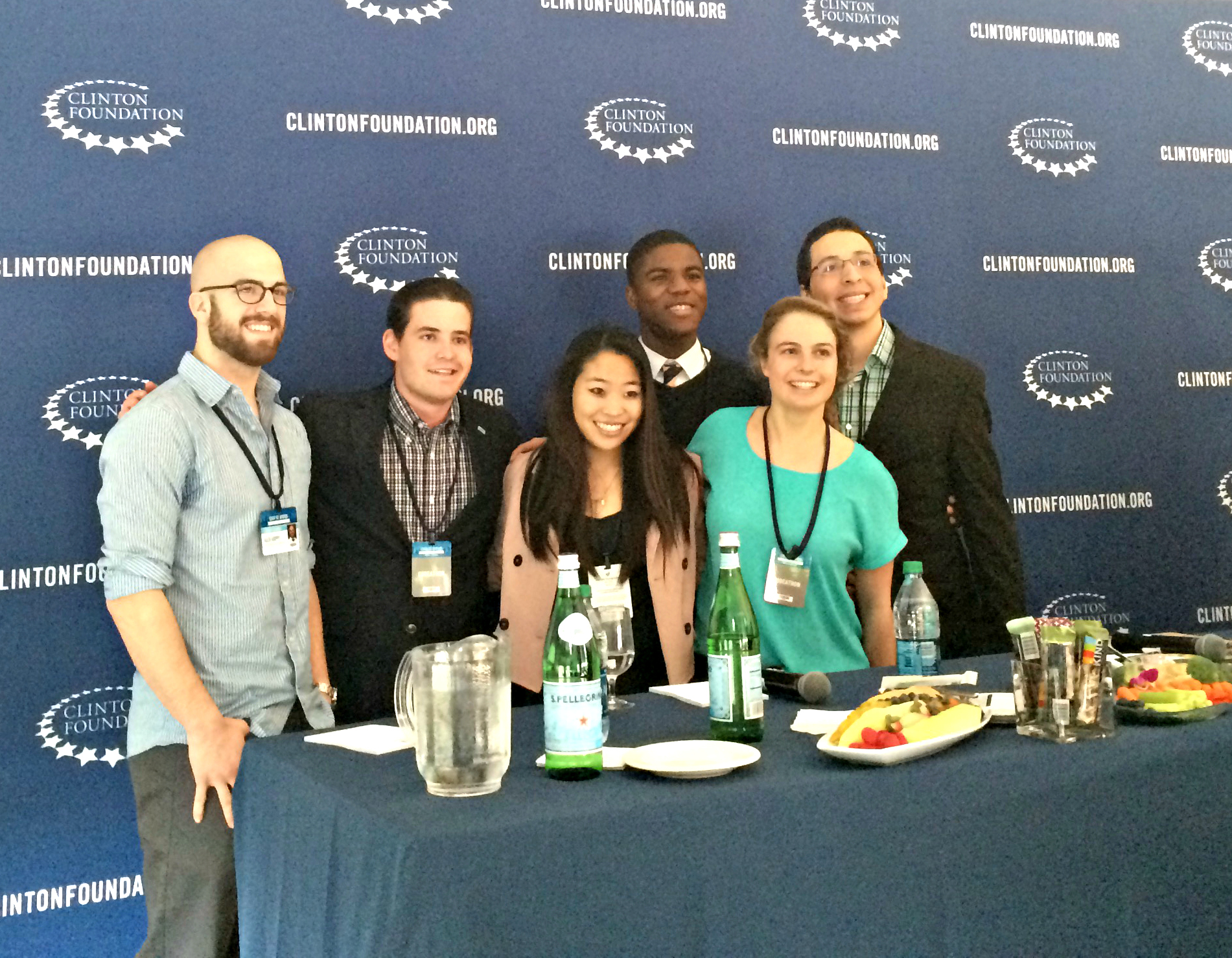
Before most University of Miami students even started spring break, the 2015 meeting of Clinton Global Initiative University (CGIU) quietly kicked off with the Clinton Foundation Codeathon, in the Iron Arrow room of the Student Activities Center.
The codeathon spanned the course of two days, culminating in a final presentation in front of a judge panel composed of Chelsea Clinton, vice chair at the Clinton Foundation; Wilfredo Fernandez, director of the CREATE incubator at Miami Dade College and co-founder of The LAB Miami; and Ben Wirz, director of Venture Investment at the Knight Foundation in Miami.
Throughout the final presentations, the judges posed essential questions and provided insight for the students.
The codeathon challenged participants to build unique prototypes inspired by the CGIU Commitments to Action. While many participants were CGIU commitment-makers themselves, the codeathon was one of the few events this weekend open to other students.
Six teams were assembled to participate in the codeathon, and most of the students met their teammates for the first time on Thursday.
These engineers, designers and programmers were brought together to build useful tools and creative solutions that would expand the scope of their CGIU commitments.
Each team designed a relevant product in CGIU focus areas including education, environment and climate change, and public health.
Projects were judged on the criteria of design, creativity and impact. The winning project was an educational online platform called MathMagic, which was developed by a team of students from the University of Miami, Duke University, Howard University, North Dakota State University and Northwestern University.
The team also included an alumna from the University of California Los Angeles, who is currently employed by Microsoft.
MathMagic addresses the problem of aversion toward math in many American students. The group’s goal is to increase peer-to-peer communication and expand students’ interest in math by using a social platform that would be based on the existing online Q&A platform, Piazza, as well as local tutoring clubs.
With its website, MathMagic proposes to connect local tutors from universities to classes of younger students.
“I love math, and this kind of just warms my math-loving heart,” Clinton said.
UM freshman Joshua Beauplan, a biomedical engineering major, was one of the participants who worked on the project.
“I’m flabbergasted,” Beauplan said. “I knew we would go up against some very challenging competition, and we put our best foot forward. I’m so glad we were able to pull it off.”
According to Beauplan, the focus of the codeathon was actually not on coding programs, but rather on the creation of a project that could be implemented with code.
Though Beauplan did not make a Commitment to Action for this year’s CGIU, he hopes to create a commitment aimed at improving coding literacy in future years.
The final projects presented by the other codeathon teams are listed below.
Quit 2 Save: A Matched Savings Program for Health and Wealth
Focus area: Public health
Home schools: University of North Carolina at Chapel Hill, Georgia Institute of Technology, University of Miami, Georgetown University
Goal: To empower low-income community members to improve their health and wealth through a tailored smoking cessation savings tool
Platform: Social media site that tracks users’ savings from smoking cessation, and uses a local partnership model to provide financial incentives
Cultivate: An Effort to Break the Cycle of Poverty
Focus area: Education
Home schools: Arizona State University, University of Miami, University College of London
Goal: To make entrepreneurship fun, accessible and successful, and to empower at-risk youth with lower educational prospects
Platform: Android phone application with tools and quizzes
Slogan: “When life gives you lemons, make a business”
SeaZar: A Scuba-Diving Computer Company
Focus area: Environment and climate change
Home schools: Arizona State University, University of St. Thomas in Minnesota, Lutheran University, Duke University
Goal: To collect and distribute data on coral reefs cheaply and easily, as opposed to using the expensive and complicated equipment that is currently in use
Platform: Software application that utilizes a waterproof hardware attachment for mobile devices
Mobilize Miami
Focus area: Environment and climate change
Home schools: University of California San Diego, Lamar University, University of Miami, University of Alabama at Birmingham, University of Chicago
Goal: To improve response to natural disasters before disasters occur, especially among lower-income populations
Platform: Web application with interactive interface that will be largely used in public spaces, like local libraries
Tik
Focus area: Public health
Home schools: St. Louis University School of Medicine, University of Alabama, Birmingham, Cornell University, University College London, Dartmouth University
Goal: To empower mothers in malnourished populations in the highlands of Chiapas, Mexico through interactive nutritional education
Platform: Tablet software application that improves nutritional and hygiene education, which can be used by local health workers





